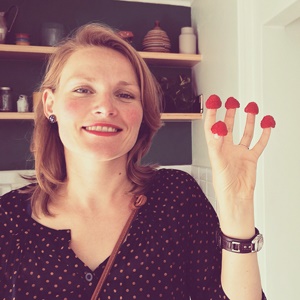
In 2013, according to Statistics South Africa, 23 885 divorces were registered, an increase of 8.6% on the 2012 figure. Almost half (47.6%) of all divorces in 2013 were registered for marriages that lasted less than ten years, and 54.4% of all divorcing couples had children younger than 18 years of age.
It is unsurprising then that only 31.7% of children in 2011 lived with both parents. In 2011, over seven million children (38.2%) lived with only their mothers, whereas only 666 000 (3.6%) lived with their fathers only.
What this reflects is that in South Africa many children grow up with an absent father, or without any father at all.
Certain factors influence the likelihood that a father will be an active parent from birth and throughout the life of their child. The first is poor access to paternity leave.
When the state only grants fathers three days to be with their child as an infant, it enforces the idea that raising children is a mother’s job.
Second, this idea is often reinforced by social and gender norms, by advertising, and by religion and culture.
In addition, for many South Africans, migrant labour means that fathers simply do not live in the same areas as their children.
This impacts on relationships between children and fathers and on the way children believe families work.
Earlier this month the State of the World’s fathers report was launched. It indicated that about 80% of the world’s men and boys will become fathers in their lifetime.
The report draws on research from international and local sources to create a picture of the impact that active engaged fathers can have on the lives of their children.
Interestingly, the impact on girl-children was particularly profound. The report found that "fathers involvement has been linked to higher cognitive development and school achievement, [and] better mental health for boys and girls."
In addition, the impact of fathers participating in home and care work was linked to girls desire to pursue different types of careers that are less traditional and potentially higher paying. This of course will have a significant positive impact on their lives as women, and on the lives of their future children.
Active, caring fathers will impact on boys’ development too. By diversifying gender roles, and recognizing that both women and men can be caregivers and providers, this opens up channels for boys to pursue different types of work.
Similarly, in households where power dynamics are challenged and where both parents make decisions about the livelihood of the household, this can deconstruct patriarchal notions that 'men know best', promote gender equality, and ultimately be a form of violence prevention.
Engaged fathers, whether they live with the co-parent or not, can also further women’s development. Many children are being raised by mothers, and those mothers need to work.
Where fathers are active this can support women to stay in the economy and better their own lives, as well as the lives of their children.
In addition, the 2014 labour market dynamics statistics in South Africa indicate that men’s monthly income remains higher on average than women’s, so fathers who contribute financially to their children’s wellbeing can make a significant difference to their opportunities, and to mothers’ financial stability. Obviously, the converse also applies.
It has long been pointed out by gender activists that changing the lives of women will require a change in the lives of men and boys.
For some men, this might be seen as a threat – to their economic status, to their role in families and society, and to their power.
And it is – women’s empowerment means a radical transformation in power relations across the board. However, I think it’s important to note that there are different types of power – power to, and power over.
In changing the way that fathers work within families – transforming a ‘power over’ relationship into a 'power to' relationship – there is the potential to make a positive change in the way boys and girls grow up.
Follow Jennifer Thorpe on Twitter.




 Publications
Publications
 Partners
Partners














